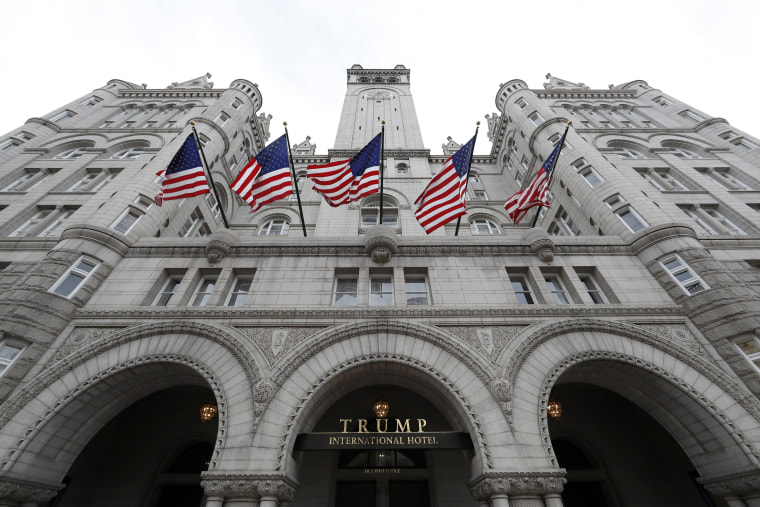Donald Trump's first legal problem as president began literally on his first day. As regular readers may recall, the "Emoluments Clause" of the Constitution prevents U.S. officials from receiving payments from foreign governments, but Trump, who refused to divest from his private-sector enterprises, never stopped profiting from his businesses, some of which receive payments from foreign governments.
Before the president's inauguration, Trump World vowed that his business would monitor receipts and make sure the president didn't profit from foreign governments, though last summer, NBC News reported that the Trump Organization decided not to keep that promise, determining that it'd be too difficult.
NBC News had a related report this morning:
Four foreign governments, 16 special interest groups and 35 Republican congressional campaign committees spent money at Trump properties in 2017, according to data compiled by the government watchdog group Public Citizen. [...][I]n a report called "Presidency for Sale," Public Citizen found that Trump properties in Washington, Florida and elsewhere seem to have benefited from Trump's election as groups with something to gain from U.S. policy have paid to stay or dine there more than 60 times.
Robert Weissman, president of Public Citizen, added in reference to the findings, "There is no way to escape the conclusion that these events are being held at the Trump properties as a way to curry favor with the president."
I imagine some of you are wondering right now about whether a federal court would consider all of this kosher. As it happens, we recently received an answer to that question.
A few days before Christmas, a federal judge dismissed a case testing Trump's practices. The Washington Post reported:
A federal judge dismissed a lawsuit Thursday alleging that President Trump violated the Constitution's emoluments clause because his hotels and restaurants do business with foreign governments while he is in office.The plaintiffs argued that because Trump properties rent out hotel rooms and meeting spaces to other governments, the president was violating a constitutional provision that bans the acceptance of foreign emoluments, or gifts from foreign powers.But Judge George B. Daniels of the Southern District of New York ruled that the plaintiffs, led by the government watchdog group Citizens for Responsibility and Ethics in Washington (CREW), lacked standing to bring such a case, saying it was up to Congress to prevent the president from accepting emoluments.
It's that last part that stood out for me. The judge in the case didn't say Trump's practices are constitutionally permissible; he said it's up to Congress to intervene.
"As the only political branch with the power to consent to violations of the Foreign Emoluments Clause, Congress is the appropriate body to determine whether, and to what extent, Defendant's conduct unlawfully infringes on that power," the ruling said. "If Congress determines that an infringement has occurred, it is up to Congress to decide whether to challenge or acquiesce to Defendant's conduct. As such, this case presents a non-justiciable political question."
In theory, the judge's ruling is hardly outrageous. In practice, however, the ruling is predicated on the assumption that the legislative branch of the United States government is still a responsible, functioning institution, cognizant of its unique responsibilities, and eager to exercise its oversight obligations.
And that's a tough sell given the current circumstances.
